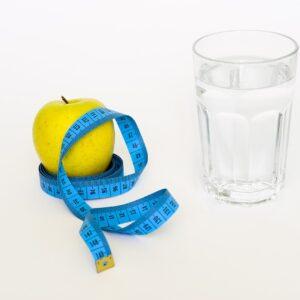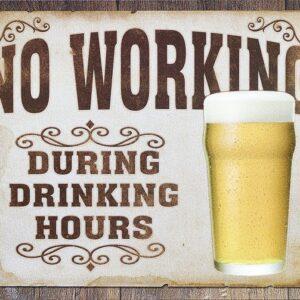Introduction: How can I lose weight fast naturally?

Weight is a complex topic and it can change over time. You have to take into account all the factors that affect weight and body composition. It cannot be reduced to one simple step. This is How Can I Lose Weight Fast Naturally?
The expert advice is based on a total body approach. If you are going to lose weight, you need to do both cardio and strength training. There are three types of cardio (walking, jogging or running), which correspond to three types of strength training:
(1) Cardio exercises using heavy weights (e.g., walking fast for 50-100 meters)
(2) Resting endurance exercises (e.g., walking for 20-30 minutes in short bursts)
(3) Strength exercises (e.g., lifting weights for 10-15 repetitions).
Natural Methods of Weight Loss
The first thing that comes to mind when you hear the word obesity is a body filled with fat. Most people associate obesity with being overweight, but not all people are overweight. If you’re thinking about yourself as overweight, chances are you’re also thinking about yourself as obese. Being obese is a state of having too much fat around your abdomen aka “visceral fat” and in your thighs and lower back aka “subcutaneous fat”. Both types of fat contribute to weight gain and they can be very difficult to lose.
But there are other reasons why we tend to think of ourselves as overweight rather than obese. One of the most common reasons is that we tend to think of our weight as something we have “earned,” as a result of working hard or consuming unhealthy foods or beverages. But the truth is that we can lose weight very easily — for many people this has happened without even trying — simply by making healthier choices and adopting regular exercise habits.
Many people still associate losing weight with complicated dietary regimens or extreme exercise regimes. Which takes them away from more simple methods such as going to the gym regularly and eating healthy food. But there are easier ways to lose weight than eating nutrition bars every morning and getting fit for a run every weekend:
• You don’t have to watch what you eat or work out intensely for long periods of time. In fact, it can be quite easy just by making small changes on a daily basis. Such as buying fewer snacks at night, cutting back on sugary drinks, etc.
• You don’t have to eliminate any food groups from your diet – if you normally eat pizza once or twice a week. It doesn’t mean you need to throw pizza out of your diet forever! This also applies for any other processed foods, sodas and juices. You just reduce how often you consume them. By replace them with fresh fruits and vegetables so that your body adapts accordingly.
• If you don’t feel like exercising today but would like some extra motivation later in the week. You can break up your workout into two parts: one part where you focus on pushing yourself beyond your current limits. Which will likely help make losing weight easier. While the second part involves walking slowly upstairs or even just lying down slowly without stopping until it feels like it takes 10 minutes to complete the task.
Dieting for Weight Loss: Not Always Effective

Dieting is, of course, a useful tool for weight loss. However, it is not always effective. For example, excessive exercise can cause significant problems with the body. In addition, there are many external factors such as lack of sleep. It can lead to weight gain over time.
In situations like this where no specific method for weight loss works and it may be better to focus on eating healthier and exercising more. Dieters often resort to “extreme” methods of losing weight that involve extreme measures like fasting or isolation from food and water for long periods of time.
Several studies have shown that short-term fasting can lead to weight loss for about a week or two. But over time it can lead to dangerous health problems such as dehydration and electrolyte imbalance as well as other serious consequences that may be fatal if left untreated.
The goal of this section is not just to debunk the myths about dieting but also provide some useful information on how much one should eat in order to lose a significant amount of weight while still maintaining good health.
Side Effects of Many Popular Diets and How to Avoid Them?
Diets are among the most popular diet regimes in the world. What are their benefits? Unfortunately, most of them have some side effects that can make you gain weight. Here is a list of the most common diet side effects:
• Losing weight is not easy it takes a lot of dedication.
• Some diets are unhealthy or dangerous. In addition, to lose weight you need to maintain a healthy lifestyle.
• The diet industry is large and not regulated/legal.
• Diets often cause complications such as malnutrition or extreme pain that could lead to serious illness.
Are you still reading? Good, because this list isn’t meant as a scientific investigation; it’s just something to help you avoid common pitfalls when trying to lose weight. We won’t be covering all these problems here. There are many other resources for them but we do feel that it was useful to provide specific information on each one.
That’s why we chose these topics for our article: they are the most common ones that people encounter when trying to lose weight. The fact that these topics aren’t mentioned publicly in the public domain does not mean they don’t exist. It just means we haven’t actually seen them ourselves. We hope this list will be helpful for those who want to lose weight naturally but also make sure they stay healthy along the way!
Conclusion
The Internet has made it easier than ever to lose weight, but the data shows that it is not as easy as some people make it out to be. There are several things you can do, but none of them will work for everyone.
Many people want to lose weight fast. However, they want to lose a certain amount of fat, and not much muscle. It is important that you know how much fat and how much muscle you should have. Without this information, you will never be able to lose weight fast.
A successful dieter needs to know this information:
– Suppose a person wants to lose 10 pounds of fat in 7 days – how much fat should he or she have? The best answer is 20% – 30% of total body weight (TBM). This means 20 pounds (2 times TBM) at the start and then 30 pounds (2 times TBM) after 7 days so that he or she has lost 10 pounds of fat. Don’t forget: You are still burning calories (calories burned = calories used + calories used for muscle growth) so you still need to burn more calories than you eat each day.
– Suppose a person wants to lose 5 pounds of fat in 7 days – how much fat should he or she have? The best answer is 15%-30% of TBM. This means 15 pounds (3 times TBM) at the start and then 30 pounds (3 times TBM) after 7 days so that he or she has lost 5 pounds of fat. Don’t forget: You are still burning calories (calories burned = calories used + calories used for muscle growth) so you still need to burn more calories than you eat each day.
There are several factors involved in losing weight: nutrition, exercise, genetics, metabolism and emotional factors. And all these factors play an important role in determining how much weight a person can lose per week regardless when they begin the diet or what exercise they do during the diet period.








